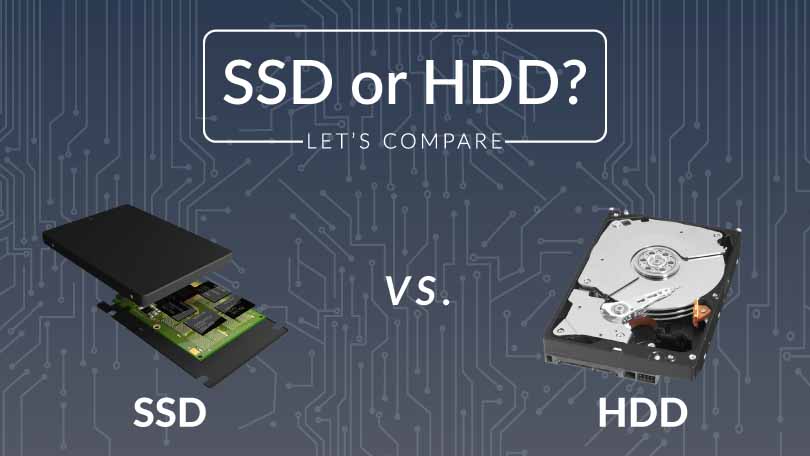Here’s a comparison between HDDs (Hard Disk Drives) and SSDs (Solid State Drives):
- Technology:
- HDD: HDDs use magnetic storage technology to store data on spinning platters. Data is read and written by a mechanical arm with a read/write head.
- SSD: SSDs use flash memory chips to store data. There are no moving parts; data is stored electronically, similar to USB flash drives.
- Speed:
- HDD: HDDs are slower compared to SSDs due to the mechanical components involved. They have slower read/write speeds, especially for random access operations.
- SSD: SSDs are significantly faster than HDDs. They offer faster boot times, faster file transfers, and quicker application loading due to their lack of moving parts and direct electronic access to data.
- Durability and Reliability:
- HDD: HDDs are more susceptible to physical damage and mechanical failure because they have moving parts. They are more prone to failure if subjected to shocks, vibrations, or physical impacts.
- SSD: SSDs are more durable and reliable than HDDs because they have no moving parts. They are less prone to mechanical failure and are better suited for mobile devices or environments with physical shocks or vibrations.
- Noise and Power Consumption:
- HDD: HDDs produce noise during operation due to the spinning platters and moving mechanical arm. They also consume more power compared to SSDs.
- SSD: SSDs are silent during operation since they have no moving parts. They consume less power than HDDs, making them more energy-efficient and suitable for laptops and portable devices.
- Price per GB:
- HDD: HDDs are generally cheaper per gigabyte compared to SSDs, making them a cost-effective option for large storage capacities.
- SSD: SSDs are more expensive per gigabyte compared to HDDs. However, the price gap has been narrowing over time as SSD prices continue to drop with advancements in technology and manufacturing processes.
- Form Factor and Size:
- HDD: HDDs are available in larger form factors, such as 3.5-inch and 2.5-inch drives, making them suitable for desktops and laptops, respectively.
- SSD: SSDs come in smaller form factors, such as M.2 and PCIe cards, making them suitable for compact devices like ultrabooks, tablets, and smartphones. They also offer flexibility in installation options.
In summary, SSDs offer faster performance, better durability, lower power consumption, and silent operation compared to HDDs, but they are generally more expensive per gigabyte. HDDs, on the other hand, provide larger storage capacities at a lower cost but are slower, less durable, and consume more power. The choice between HDD and SSD depends on your specific needs, budget, and priorities regarding performance, reliability, and storage capacity.

